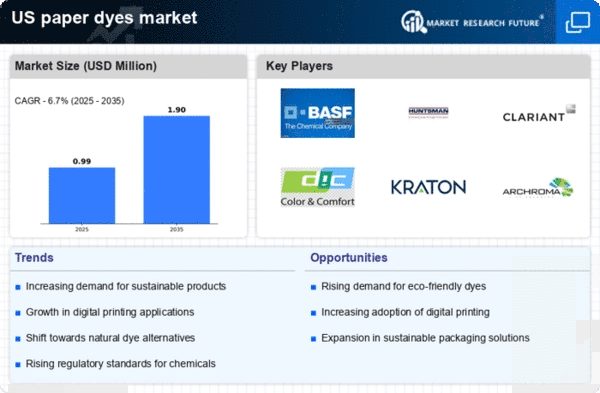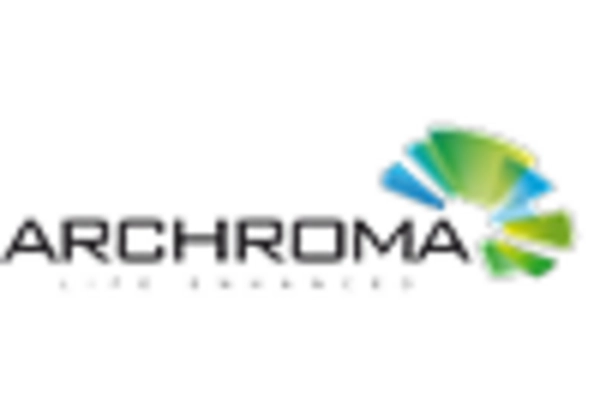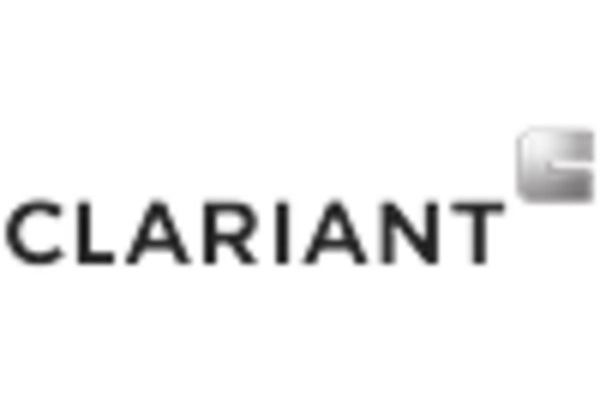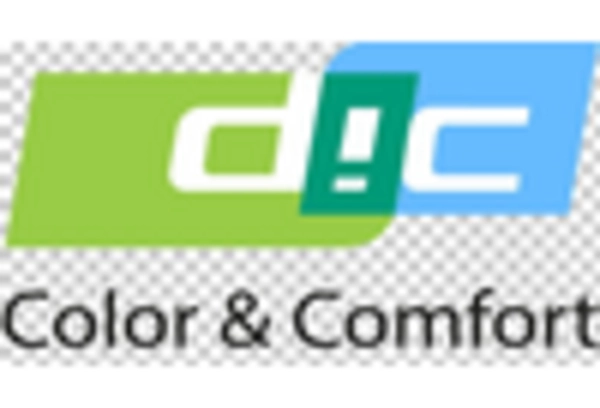Increased Regulatory Standards
The implementation of stricter regulatory standards regarding chemical usage in the paper industry is influencing the paper dyes market. Regulatory bodies are increasingly focusing on the safety and environmental impact of dyes, prompting manufacturers to reformulate their products. This shift is likely to lead to a rise in demand for compliant dyes that meet these new regulations. By 2025, it is expected that around 25% of the paper dyes market will be driven by products that adhere to these enhanced safety standards. Companies that proactively adapt to these regulations may gain a competitive edge, as they can assure customers of their commitment to safety and environmental responsibility.
Growth of the E-Commerce Sector
The rapid expansion of the e-commerce sector is significantly impacting the paper dyes market. As online shopping continues to rise, the demand for packaging materials, including colored paper and cardboard, is increasing. In 2025, the e-commerce industry is projected to reach a valuation of over $1 trillion in the US, which will likely drive the need for vibrant and appealing packaging solutions. This growth presents opportunities for paper dye manufacturers to cater to the specific needs of e-commerce businesses, which often require customized and eye-catching packaging. Consequently, the paper dyes market is expected to experience a boost as companies seek to enhance their product presentation and brand identity through innovative dye solutions.
Expansion of the Packaging Industry
The ongoing expansion of the packaging industry is a vital driver for the paper dyes market. As consumer preferences shift towards more personalized and aesthetically pleasing packaging, the demand for colored and printed paper products is on the rise. In 2025, the packaging sector is projected to grow at a CAGR of 4.5%, which will likely bolster the paper dyes market. This growth is attributed to the increasing use of paper-based packaging solutions as alternatives to plastic. Consequently, manufacturers in the paper dyes market are expected to innovate and diversify their product offerings to meet the evolving needs of the packaging industry, thereby enhancing their market presence.
Rising Demand for Eco-Friendly Products
The increasing consumer preference for eco-friendly products is a notable driver in the paper dyes market. As awareness of environmental issues grows, consumers are gravitating towards sustainable options. This trend is reflected in the paper industry, where the demand for biodegradable and non-toxic dyes is surging. In 2025, it is estimated that the market for eco-friendly dyes could account for approximately 30% of the total paper dyes market. Manufacturers are responding by innovating and developing dyes that meet these environmental standards, thereby enhancing their market position. The shift towards sustainability not only aligns with consumer values but also encourages companies to adopt greener practices, which may lead to a more competitive landscape in the paper dyes market.
Technological Innovations in Dye Production
Technological advancements in dye production processes are emerging as a crucial driver for the paper dyes market. Innovations such as digital printing and advanced dyeing techniques are enabling manufacturers to produce high-quality dyes more efficiently. These technologies not only reduce production costs but also minimize waste, aligning with the industry's shift towards sustainability. In 2025, it is anticipated that the adoption of these technologies could lead to a 15% increase in production efficiency within the paper dyes market. Furthermore, the ability to create a wider range of colors and effects through these innovations may attract new customers and applications, thereby expanding the market's potential.
















